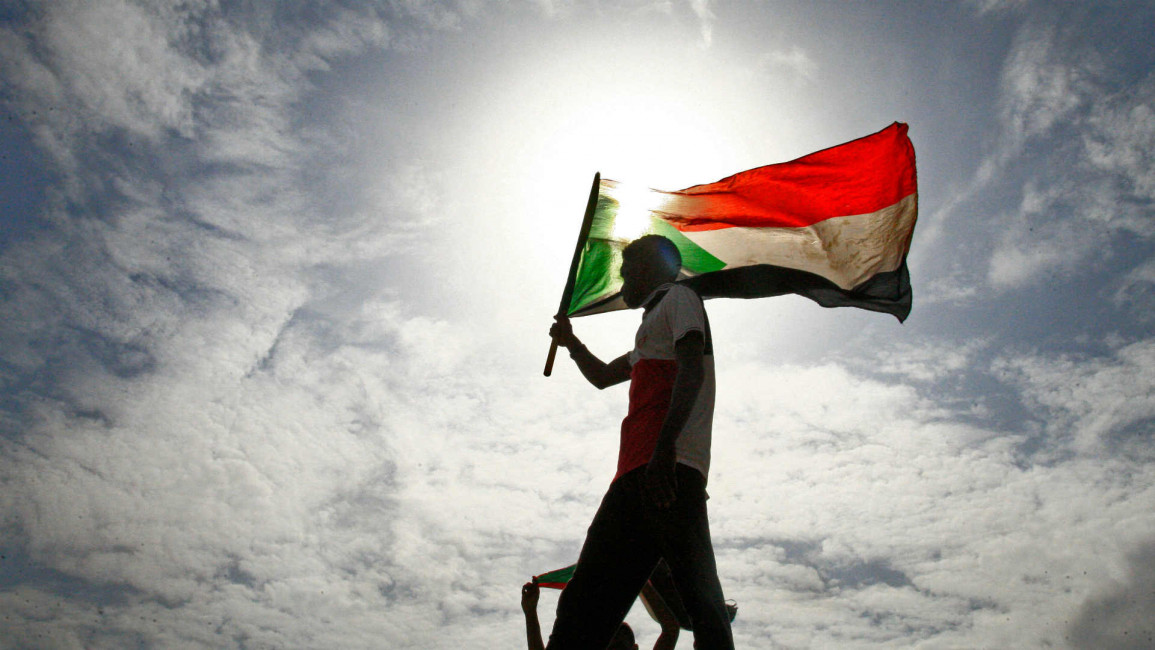US to lift Sudan sanctions 'after elections': reports
US to lift Sudan sanctions 'after elections': reports
Washington plans to lift sanctions on Khartoum after the country holds its first democratic elections following a three-year transitional period, a source claimed.
3 min read
The IMF predicts Sudan will dive deeper into a recession this year [Getty]
The US plans to lift damaging sanctions on Sudan after the country holds its first democratic election in decades, a Sudanese source told Turkish state news agency Anadolu.
Sudanese officials have campaigned for Khartoum's removal from the US State Sponsors of Terrorism list and the lifting of sanctions on the country since the ousting of former president Omar al-Bashir last year.
Washington has so far expressed satisfaction with steps taken by the transitional government but stated more must be done before the removal of the damaging designation.
The Trump administration has handed over a six-point plan of steps to be taken for the full normalisation of relations, an informed Sudanese source told Anadolu. The source spoke on condition of anonymity as they were not allowed to speak to the press.
Among the stipulations in the plan is that a new government must be elected, the source said.
The country's first democratic elections in decades are not expected to take place until 2022, when a more than three-year transitional period is scheduled to come to an end.
Military, rights reforms
Power is currently shared between the military and civilians.
Army general Abdel Fattah al-Burhan currently leads a joint military-civilian Sovereign Council, while former World Bank economist Abdalla Hamdok acts as prime minister and chief of a civilian-led cabinet. A planned civilian-led legislative council has not yet been formed.
|
|
"The plan [also] stipulates the reform of the Sudanese army and merging the Rapid Support Forces (RSF) or any other militia under the command of the Sudanese military," the source said, referring to the controversial paramilitary force accused of violence against demonstrators and ethnic minorities.
Washington ideally sees this merger as taking place under UN supervision, the source explained.
"Other conditions are related to combating terrorism, religious freedom, the signing of international human rights laws, and coordination on humanitarian aid and peace files," the source added.
The United States first imposed economic sanctions on Sudan in 1997, four years after Khartoum was first designated a State Sponsor of Terrorism. Washington accused the Bashir regime of hosting then-Al-Qaeda leader Osama bin Laden and providing material support to the extremist group.
Further sanctions were imposed following the 1998 Al-Qaeda attacks on two US embassies in Kenya and Tanzania, and again following the Darfur conflict.
Bashir and two other former Sudanese officials are currently sought by the ICC for alleged war crimes and crimes against humanity during the conflict.
While the Obama administration lifted some of the sanctions in 2017, sanctions relating to the State Sponsor of Terrorism designation and the Darfur conflict remain.
The sanctions prohibit Sudan's access to desperately needed foreign investment and aid.
Already wracked under Bashir, the Sudanese economy is predicted to plunge deeper into recession this year amid the coronavirus crisis.
Follow us on Facebook, Twitter and Instagram to stay connected


![President Pezeshkian has denounced Israel's attacks on Lebanon [Getty]](/sites/default/files/styles/image_684x385/public/2173482924.jpeg?h=a5f2f23a&itok=q3evVtko)



 Follow the Middle East's top stories in English at The New Arab on Google News
Follow the Middle East's top stories in English at The New Arab on Google News


